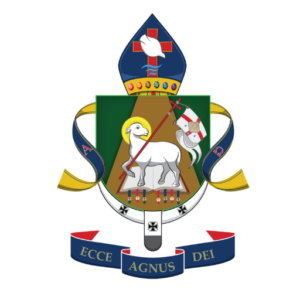The Fourth Watch
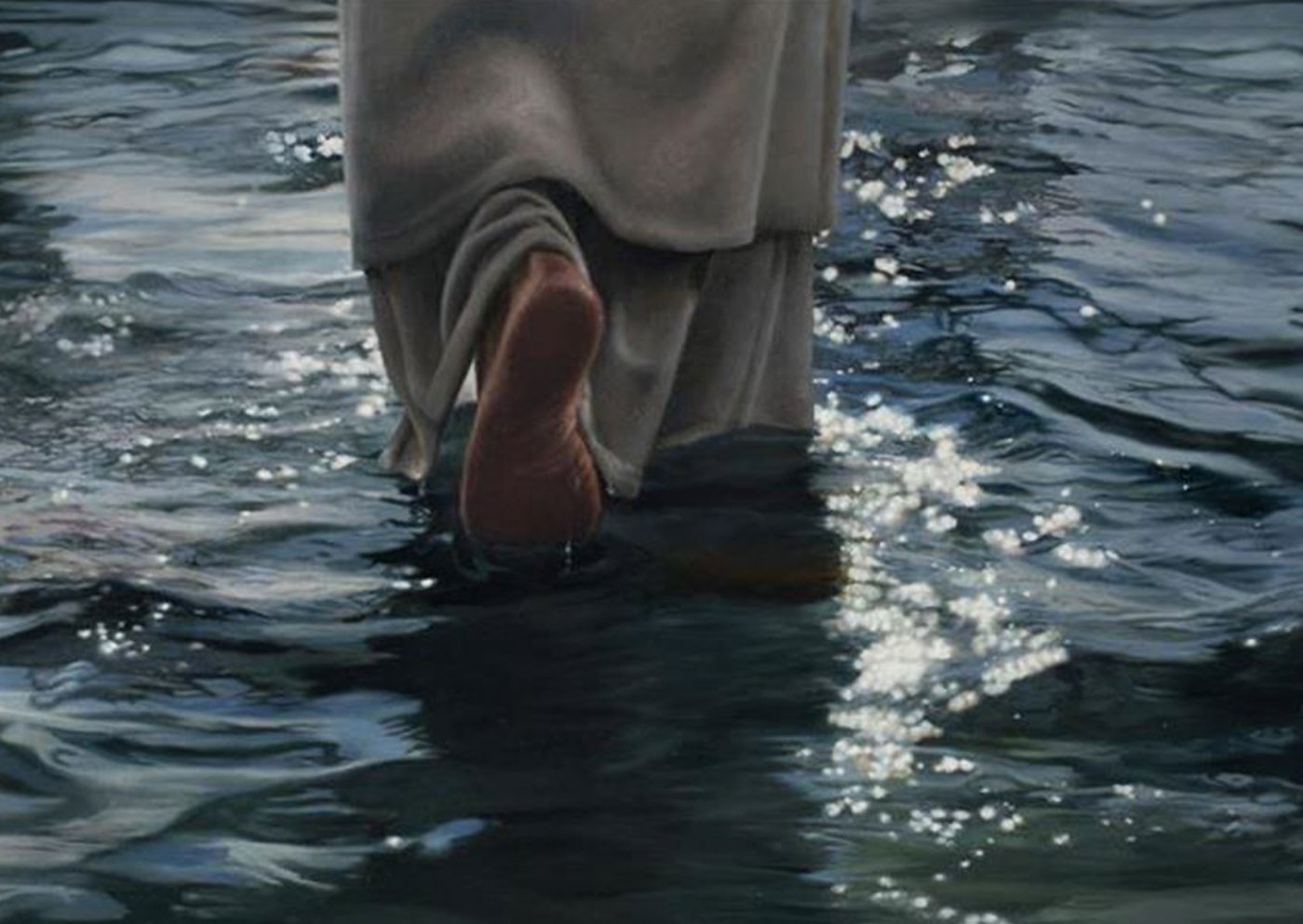
“The Fourth Watch”
Archbishop Loren Thomas Hines
Ninth Sunday of Ordinary Time
August 13, 2017
Readings: Jonah 2:1-9, Psalm 29
Romans 9:1-5
Matthew 14:22-33
Here we are on the 9th Sunday of Ordinary Time and we’re still looking for guidance so we can live out all that God has done for us. Christ paid the price to set us free. He wiped away our guilt and shame and everything that the enemy has set against us. He literally set us free. Scripture says he who is free is free indeed. It’s amazing how we still live in condemnation and shame. We still live in doubt instead of believing that all that God has done for us is real. God doesn’t fail nor lie; He’s not a man. We must believe and have confidence in Him. In today’s Gospel, after Jesus rescued Peter, He asked, “Why did you doubt? Where is your faith?” Peter was already walking on the water, but his unbelief brought him down. It wasn’t the wind but his own doubting that caused him to start to sink, and Jesus had to rescue him. This is the compassion of God. Even in our weaknesses, He comes to our aid over and over again with compassion, mercy and grace. Here in the midst of Ordinary Time where God has given us everything pertaining to life and godliness – He gave us life and no one can take that away from us – Jesus understands our weaknesses, struggles and battles because He lived in the flesh and went through everything that we’re going through, except that He did not sin. He held on to His faith in God knowing that God will not fail.
Today’s lessons challenge us in this thought. We see Jonah and the picture of the first submarine, as a fish swallowed him and took him down to the roots of the mountains, inside the belly of the fish. Notice how Jonah is described; seemingly he wasn’t fearful and anxious. Very calmly he called out to God and repented of his failure, and asked God to save him. “Salvation is from the Lord.” He knew he couldn’t do it on his own. He was in deep water and only God could rescue him. Even if the fish were to open its mouth and he could get out, he couldn’t swim that long to get to the surface. This is preface of Christ going to hell and staying there for three days, and then rising again; because on the third day, the fish threw out Jonah on dry land. He was rescued. God called Jonah to go to Nineveh to witness to them that if they didn’t repent, they would be destroyed. He was a Jew; he didn’t want to go to Nineveh because if he did and Nineveh repented, what would happen to Israel who was in sin? He didn’t want to tell Nineveh that they could be redeemed when his own people couldn’t be redeemed. So he got on a boat to go someplace to hide and because of his rebellion, he caused a storm. Here, as in the Gospel, Jesus used water. When Jonah in rebellion got on the boat and a storm came, the sailors understood that somebody did a wrong. As long as we’re living in rebellion and sin, nature responds accordingly. Scripture says all creation is groaning to be redeemed by the sons of men, waiting for their revelation. Even in the Old Testament we see God dealing with men, but in the midst of this tragedy, picture yourself in the belly of a fish knowing you can call on God in the midst of a disaster and not give up on your faith. “God is my salvation.” When man has this hope, keeping faith in the midst of tragedy, it doesn’t matter how difficult it seems. It was an impossible situation Jonah found himself in. How could you be swallowed by this great fish and survive? The acid in the stomach of the fish could dissolve Jonah, but for some reason, the natural order of things wasn’t functioning as it should because God was dealing with Jonah. He called on Jonah for a task that he didn’t want to do, and Jonah, in the midst of all this, was praying from Psalm 2. He didn’t forget God. Yes, he was rebellious but he trusted God. This tells us that even in the midst of our greatest trouble, we are not to give up because nobody can save us but God and when He does, He gets the greatest glory.
In Romans 9, Paul was in great grief because of the Jews. He had just told them in Romans 8 that nothing can separate them from the love of God, but they were rejecting it (read Romans 8:31-39). He writes this just prior to telling us how grieved he is that his own people were not accepting Christ and all that He did for them because they were God’s chosen people. Paul then was being sent to the Gentiles, much like Jonah to the Ninevites, to minister to the Gentiles and bring them to the Kingdom of God. The Jews had rejected Christ and wanted to do their own thing, and this grieved Paul. Sometimes we put more confidence in ourselves rather than God. There are times when God expects us to do things ourselves but we must recognize that anything we do is because of God in us with His strength and wisdom. It’s not us, but Him working through us to accomplish His will. We must recognize this as our mission in life: to accomplish what He has equipped us to do; to be His love and compassion to the people and give Him glory in the process. Everything we do, we do because of Him and through Him.
In the Gospel, Christ had just fed the 5 thousand. They were in the wilderness for several days and the people were hungry. Christ knew what He was going to do but He gave the disciples an opportunity to realize that they couldn’t do it; that they would need a miracle. He fed the multitude and had 12 baskets of leftovers. When the ministry was finished, He sent the disciples to the other side. He did this on purpose because He didn’t want the disciples to stay and be affected by the plans of the people who wanted to proclaim Him King. He didn’t want that. He wanted the people to put their trust in God, so He sent the crowds away and then He went to a mountain to pray. John had just been decapitated and this grieved the Lord. He left for some alone time to grieve but crowds followed Him wherever He went. He wanted to communicate with God so He sent the disciples to sea, to go to the other side after sending the people away. He prayed to God and listened to Him. He didn’t want to walk on His own abilities and understanding.
At about 3am (the fourth watch of the night), Jesus sensed that the disciples on the boat were in trouble. This was the second time that they had been sent out on a boat and faced a storm. The first time, Jesus was with them. In today’s Gospel, He wanted the disciples to face this on their own. He had shown them that He can control the seas and they should realize that they also have that ability. He knew there was going to be a storm and maybe He planned it that way. After some time, He sensed that the disciples were in trouble so He left the mountain and came to them, walking across the sea towards them. He was in the mountain praying and they were out in the sea, quite a distance from where the Lord was by then, yet when He leaves at 3am, He was there on the sea with them almost instantly. This shows that He is in control of nature. The storm was raging and Jesus came to them walking on the sea. In fear, they thought the Lord had died and it was His ghost coming to them. They became even more fearful. Jesus immediately calmed them down, saying, “Take courage, it is I; do not be afraid”. He said this before: “I am”. Peter, being the impulsive man that he was (quick to respond without first thinking of his words), said to the Lord, “Lord, if it is You, command me to come to You on the water”. This is an important detail. Peter waited for the Lord’s instruction before he stepped out of the boat to walk to Him. He didn’t want to do it on his own; he wanted the Lord to give him the command. Jesus said, “Come!” Peter got out of the boat and walked on the water toward Jesus. But seeing the wind, he became frightened and beginning to sink, he cried out, “Lord, save me!” This again shows our dependence on God to save us in the midst of tragedy. This is something we must realize as His people. Many times when we find ourselves in great difficulty, we give up. It’s not over until we win because Christ has given us the victory. He will not fail us. The problem is our faith, in holding on to what He has promised. We rely more on our human understanding of the things around us and we forget that God is greater than we are.
Jesus used the sea to prepare the disciples for what was to come. He wanted them to grow in faith and was challenging them to rise up. When He got into the boat with Peter, the wind stopped and then they were on the other side. How did they get there so fast? It was God’s doing. All things are possible with God. We must believe this, have this awareness, that God can do anything. He loves us and is committed to us. Jesus used the sea to challenge His disciples. This walking on the sea should not surprise us because in the Old Testament, Job, Solomon, David, and Habbakuk spoke of the Lord walking on the sea. He is the Lord and King of all. He has dominion over all things. He could walk on water because He created it. Without Him, the water wouldn’t be there. Without God we are nothing. We can walk on the water only because of Him, and only when He invites us to, like Peter.
Today’s Gospel talks of the fourth watch. According to theology, the first watch is from Adam to Noah. The second watch is from Noah to Moses. The third watch from Moses to Christ coming in the flesh and the fourth watch is when Christ will come to be with us. When God speaks to us in Scripture, He speaks in symbols. The boat is probably symbolic of the Church and the Gospel is telling us that on the fourth watch, the Church will be in great turmoil. Look at the Church today; it’s in turmoil and stress. How many divisions have come upon the Church? Even the large denominations are falling apart or dissolving. But on the fourth watch, Jesus will come to save the Church. This is the time when God will show Himself greatest – when the Church is failing and struggling. This is the time when Christ will come and show Himself real to the Church. I’m not saying He will come physically; Scripture says no one knows when He’ll return. But Christ’s presence will come upon the Church to correct its error because the Church has turned to the ways of the world that many times you can no longer tell between the Church’s ways and the world’s ways. In many cases, the Church has become what the world is rather than setting the standards that God gave us. So we see in today’s lessons that God is encouraging us that even in the midst of great turmoil and stress (Trump is threatening North Korea; North Korea’s threatening to nuke Guam which is not very far from here), our faith must not fail but be increasing. He will not fail, leave nor forsake us. But He won’t force Himself upon us. We must come to Him willingly. It’s our dying to self that will cause Christ to rise up in our lives. If the boat is the Church, then the Church is in great trouble. Some churches are not even preaching the truth but what I call “me-ology” so you can feel good. Our faith requires our submission to God. He wants us to have faith in Him and not in our abilities.
This is what Ordinary Time is about – taking what He has given us and living it out; not living contrary to it. This is why Paul was grieving over Israel. God had given them all the blessings but they weren’t using them. They were using their own abilities. They have great abilities; they are probably the wealthiest people in the world. But they are not giving the credit to God and it won’t last. We are challenged today to trust Him even in our darkest hour. He will not fail us. Even in the belly of a fish, He will rescue us if our attitude is right. Jonah cried out to God and God rescued him. Peter cried out to Jesus and told the Lord to ask him to come to Him. He wouldn’t do it until Jesus asked him to because he acknowledged that Jesus is his strength and his all in all. This is something we as a people must learn. The most important thing is putting Christ first in our lives. I don’t want to be swallowed by a whale. I don’t like being on a boat in a storm because I get seasick. I would rather claim Jesus as Lord of my life without waiting until turmoil comes.
In the midst of Ordinary Time, we have to learn to depend upon Him. He did all of these for us. That’s why He came. Are we going to deny what He has done? Are we going to put our confidence in ourselves? Peter began to sink because he didn’t stand up against the storm. He had just seen Jesus feeding the 5 thousand. He was on the boat when Jesus calmed the sea, but he forgot all this and he thought that Jesus was a ghost. We may fail but Christ is our redemption. His love and compassion are for us. Let us learn to listen to Him and follow His direction.
Recent Sermons
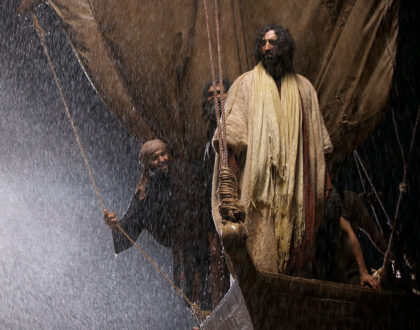
Jesus, Calmer Of Storms
June 23, 2024
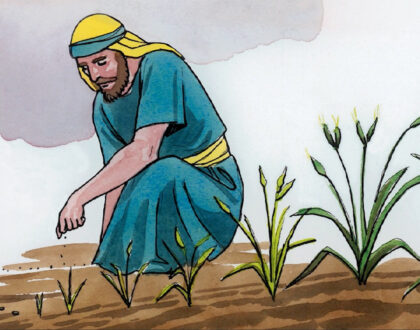
Harvest Time Stemming From The Smallest Seed
June 17, 2024
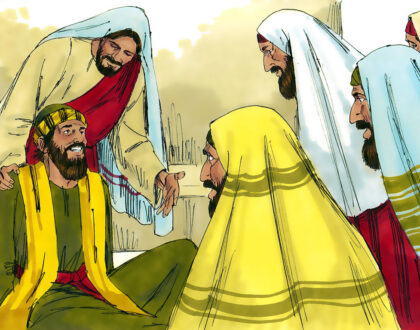
Not Bound By Limitations To Minister
June 10, 2024

